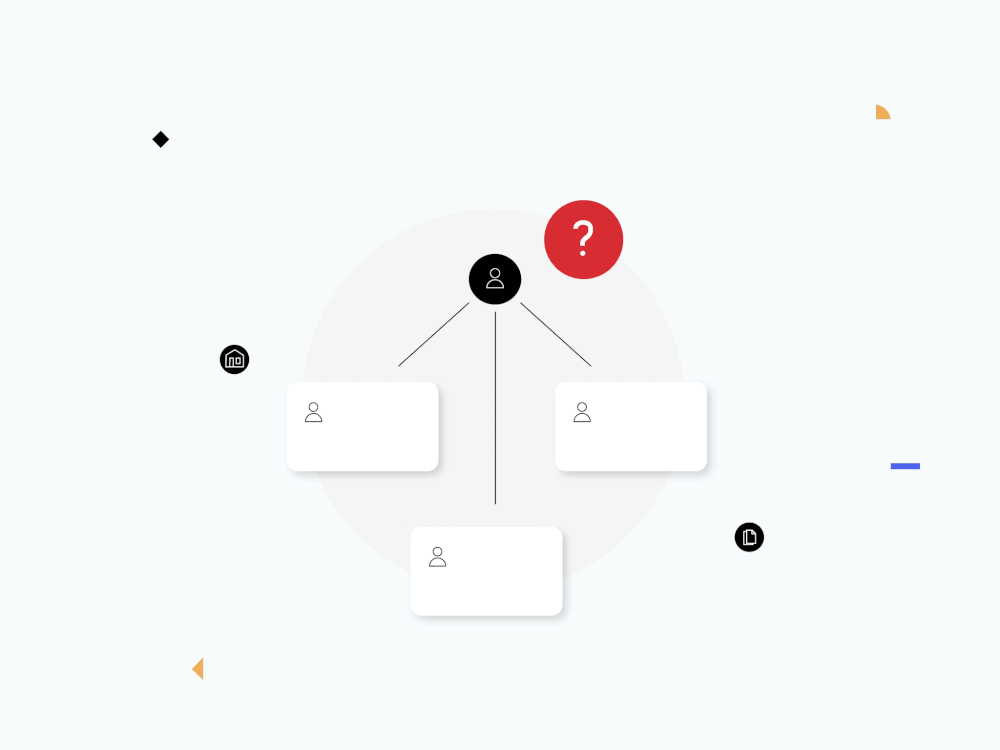 Vanilla
Vanilla
Top 5 challenges of estate planning for blended families (and how to solve them)

Deciding who gets what after one’s passing is tough. According to a survey by Caring.com, only 42% of American adults have essential estate planning documents, such as a will or a living trust. People avoid planning for the inevitable for many reasons. But for blended families, a major reason is that estate planning requires more than a simple will.
Many difficult questions come up: How do I ensure everyone is well taken care of after I am gone? Should I leave everything to my spouse and hope they take care of my children? How do I avoid disinheriting my children?
Estate planning for blended families has many unique challenges that, as a financial advisor, you need to know about so that you can fully prepare for your client’s passing. Here are five challenges of estate planning for blended families and practical solutions that ease the stress that comes with it.
Children could be disinherited by surviving spouses
It is not uncommon for people to remarry after the death of their spouse. If your client transferred all of their assets to their spouse or did not leave a will, your client’s children might be disinherited. This can happen in two ways:
-
A surviving spouse might remarry and give their assets to their new partner.
-
Your client’s children might be removed from the will of the surviving spouse. This is not illegal as stepparents have no obligation to provide for their stepchildren.
If your client did not make it clear what assets their children should receive, chances are they are not getting anything. This was the case with a young woman whose father died without a will. He had hoped that his surviving spouse would treat his daughter fairly and give her a fair amount. But the relationship between his daughter and her stepmother was cold, and the daughter did not get anything of value from her father’s estate.
Solution: Set up a trust or a mutual will
There are two solutions you can provide for your clients to avoid such disasters.
1. They can set up a trust and appoint a trustee to manage and distribute their assets
Trusts specify how assets will be held and used on behalf of your client’s beneficiaries. But setting up the trust is just the first step. After creating it, your clients would also need to find a representative (a trustee) to act in their interest and carry out their wishes regarding the trusts they set up. Naming the wrong fiduciary trustee can lead to disasters, such as family feuds, battles in probate court, and the mismanagement of assets.
To avoid this, make sure your client chooses a trustee who is trustworthy, financially responsible, and unbiased. Your client might want to consider appointing a professional trustee or an accountant with no personal ties or interests instead of a family member.
2. They can create an irrevocable mutual will with their spouse
The purpose of a mutual will, according to Investopedia, is “to ensure that property passes to the deceased’s children rather than to a new spouse if a living spouse remarries after the death of the other.” This legally binding agreement takes effect after your client’s death and ensures that their children are well provided for even when they are not there. The surviving spouse is bound by law to pass on assets and fulfill obligations to your client’s children and not to a new spouse or their own children.
To set up a mutual will, your client would have to determine what is to be inherited and who is to inherit it. After drafting and signing the will, they have to appoint an executor for the will and make arrangements for a trustee to manage the assets. One important thing that shouldn’t be overlooked is appointing a guardian for underage children, as well as someone to manage their wealth until they come of age.
One spouse owns more assets than the other
It is hard to agree on what’s a fair share for everyone when your client is wealthier than their spouse and dies intestate.
Your client’s children might feel like they deserve a larger share of the assets and that their stepparent is getting more than their fair share. This could lead to them contesting the will in probate court. Cases like these could cause suffering for your client’s loved ones, and the legal bills could swallow a chunk of their estate in the process.
Solution: Advise your clients to have a prenuptial agreement
Although prenuptial agreements get a bad rap, they can help your client draw a clear line between shared and personal assets. It also protects your client from taking on the debts of their spouses. And more importantly, your client can allocate where their money goes in an emergency. This way, the family wealth can be shared clearly and fairly.
A prenuptial agreement doesn’t hold much water if it isn’t in line with the law. This is why your client may need a lawyer to review the agreement after they draft it.
Children have to wait for the death of their stepparent to receive their inheritance
In some arrangements, the surviving spouse is given control of the financial assets or property after the passing of a parent. This means that children have to wait for the passing of their stepparent to access their biological parent’s wealth. Also, it means that stepchildren would have to rely on the kindness of their stepparents to cover expenses, like a college education or medical bills.
If children want and need their inheritance immediately, and it is tied to the lifespan of their stepparent, this can cause impatience and a lot of bad blood.
The stepparents might not be benevolent toward children who are minors or have special needs, hence neglecting to provide for them sufficiently.
Solution: Leave assets to children
Your client can avoid this sticky situation by leaving assets that their children can access before the surviving spouse passes. This way, the children don’t have to wait around for their stepparent to kick the bucket to access all of their inheritance.
Parents can leave assets to their children through trusts or insurance plans. With a trust, they can then decide how and when assets will be given to beneficiaries. For example, your client can make provisions for monthly allowances to be made to their adult children by the trustee.
Leaving life insurance to children can also help provide for them after your client’s passing. Ideally, your client should only name adult children as beneficiaries for their life insurance policy. In the case of a minor or a special needs child, your client would have to appoint a trustee to avoid complications.
The deceased spouse did not update estate planning documents
One mistake people make is forgetting to update their estate plans when they go through a major life change like a divorce or remarriage or the birth of a child. For people with blended families, this could lead to their assets going to the wrong beneficiaries or to their new children being excluded from the inheritance.
This was the case with John Singleton, a movie director who died without updating his will. His outdated will did not include his wishes for some of his children. This left his family confused and at war after his death. A situation like this could leave your client’s current family with nothing. It could also lead to family members contesting an outdated will in probate court.
Solution: Nudge your client to regularly review and update information in their estate plans
Your clients need to regularly review and update their estate planning documents to reflect the changes in their lives. Although this is not anyone’s favorite activity, not doing it can lead to their loved ones not being provided for after their death or their assets being left to the wrong beneficiaries.
Vanilla helps you automate this process by helping you review client documents for any changes they need to make. Armed with this information, you can then send an email to your client and invite them to update their estate planning documents within the tool. If you have questions about Vanilla, get in touch.
Not making a will
47% of respondents in the Caring.com survey stated that they procrastinate making a will. When your client dies without a will, the distribution of their assets is decided by the courts. The final results might not be in line with your client’s wishes. For example, the house might go to their spouse instead of to their child.
Making plans for death while still alive is not easy for many people. Your client might keep putting off their estate planning, believing they have time.
Solution: Talk to your clients about death before it happens
Your clients might never “get around” to writing their will or setting up a trust for their families. It is up to you to speak to them about the dangers of leaving an important responsibility undone. Let them know that it could leave their family locked in bitter court battles or sharing of their assets with the cold, impersonal hands of the law.
You can make hard estate planning conversations easier by using Vanilla. We’ve compiled all the important questions you need to ask so that you don’t miss any vital information. Help your clients give everyone a fair share
Although creating estate plans for blended families is very complicated, it is possible to help your clients navigate family dynamics and allocate resources fairly without leaving anyone out. Get to know what they want for their beneficiaries and help them align it with their financial assets. Start using Vanilla’s simple and intuitive estate planning platform to help your clients provide for their families fairly. Get in touch to get started.
Help your clients easily navigate family dynamics
This article is for educational purposes only and should not be considered legal advice. If you feel that the information in this article is pertinent to your situation, you may wish to consult a qualified attorney for advice tailored to your circumstances.
Published: Jul 19, 2021
Holistic wealth management starts here
Join thousands of advisors who use Vanilla to transform their service offering and accelerate revenue growth.
